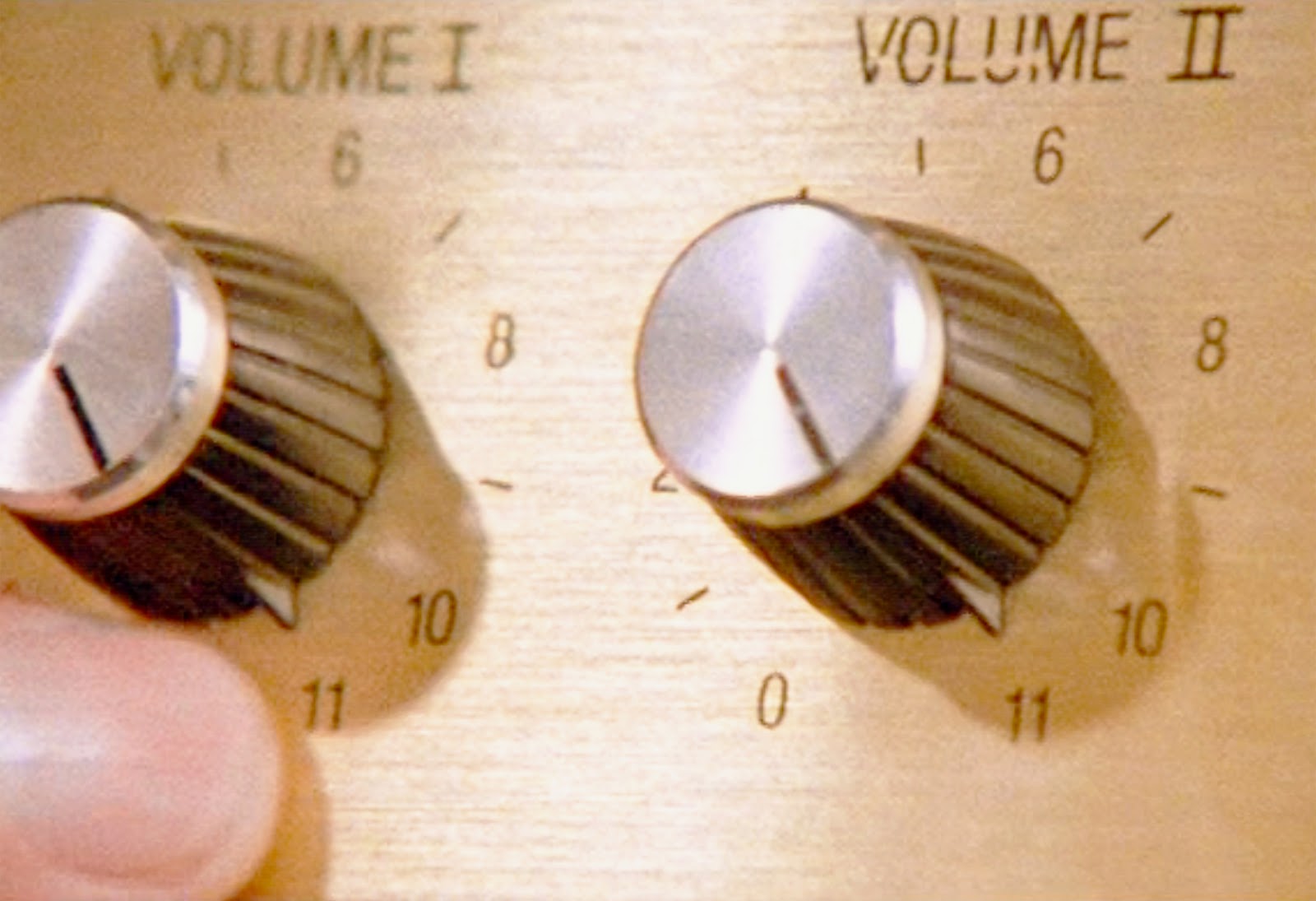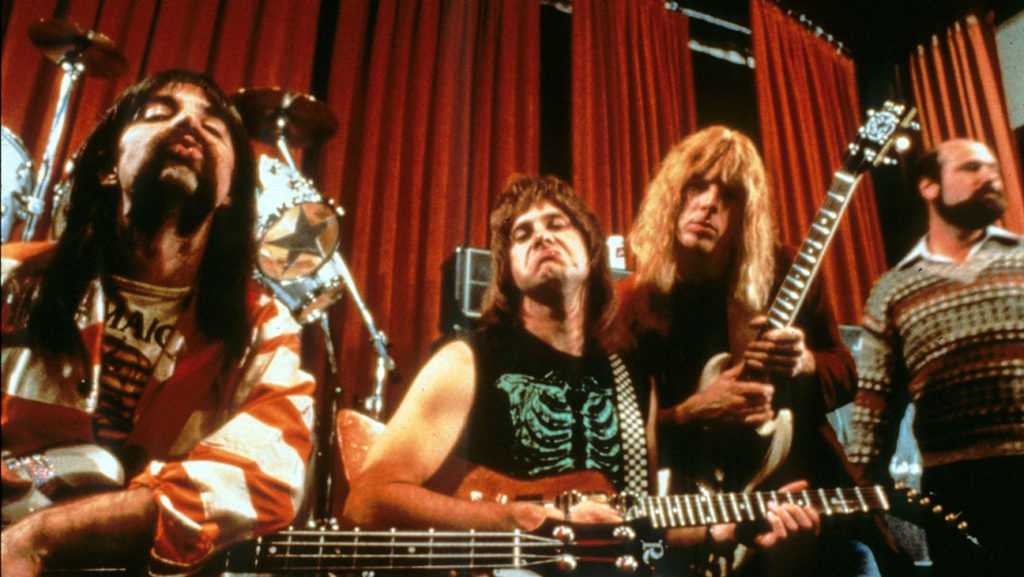
Thirty-three years out from its release, This Is Spinal Tap has become something of an easy film to take for granted. Its fingerprints (vomitprints?) can be found on much of the best-loved comedy of the twenty-first century, from the faux-documentaries of The Office and Arrested Development to the musical satire of Fred Armisen and Flight of the Conchords. Its stars have performed and recorded so extensively in character that one must seriously question whether the central band can even be considered “fake.” Its quotable dialogue has not only permeated the cultural lexicon, it’s literally in the dictionary. It’s been one of my favorite movies for more than half of my life– maybe even more than that, as my parents took me to the drive-in as a baby to see it in its original theatrical run. I can’t imagine a world without Spinal Tap, and even if you haven’t seen it, chances are you can’t either.
And yet, it’s worth taking a step back to marvel at how remarkable it is that it works at all. Unlike many latter-day mockumentaries, This Is Spinal Tap was shot entirely without a script; the set-pieces were obviously blocked, and the actors would have a general idea of what was going to happen in each scene, but, with the exception of Patrick Macnee’s toast at the band’s release party, 100% of the dialogue was ad-libbed by the talented cast. Today, the words “improv heavy” generally connote shaggy, indulgent comedies featuring long takes of Will Ferrell muttering baby talk. But Spinal Tap, miraculously, feels not just disciplined, but tight. Its scenes would be master classes in comedy writing, if they were actually written in the first place (humorously, it nearly made the top ten in the Writers Guild of America’s list of the top 100 funniest screenplays). Instead, it seems to have birthed a fully formed screenplay out of the ether.

Granted, this is partially an illusion: the cast filmed over 100 hours of material, which were ultimately whittled down to a sveldt 82 minutes (the Criterion and MGM DVD releases each feature over an hour of deleted scenes, with virtually no overlap, and sprawling workprints were staples of the underground tape trading circuit of the 1990s). But credit is also due to the actors: Christopher Guest cut his teeth on the improv-heavy National Lampoon Radio Hour, where he received top billing over such budding comedy stars as John Belushi, Chevy Chase, Bill Murray, and Gilda Radner, while Harry Shearer and Michael McKean got their start in the LA-based sketch comedy troupe The Credibility Gap (along with McKean’s future Laverne & Shirley partner David L. Lander). Both troupes, incidentally, also showcase their members’ talents for musical satire: check out the Gap’s Osmonds-as-Jacksons parody “You Can’t Judge a Book by Its Hair,” or Guest’s sprawling “Art Rock Suite” from the Lampoon album Goodbye Pop.
Regardless, This Is Spinal Tap is a marvel. Like The Blair Witch Project (arguably the second best faux documentary of all time), it took several years for its influence to fully show; it was so singular, and so good at what it set out to do, that the idea of replicating it seemed nearly impossible. It wasn’t until Guest himself returned to the genre with a trio of beloved mockumentaries (1996’s Waiting for Guffman, 2000’s Best in Show, and 2003’s A Mighty Wind) that the term went from a descriptor to a full-fledged subgenre of comedy. None of this likely would have happened (or, at the very least, would have happened much later and very differently) had the stars not aligned to make Spinal Tap so damned perfect, but, as a wise man once said: It’s a fine line between stupid and clever.
This Is Spinal Tap
1984
dir. Rob Reiner
82 min.
Screens Saturday, 11/11, 11:59pm @ Coolidge Corner Theatre

